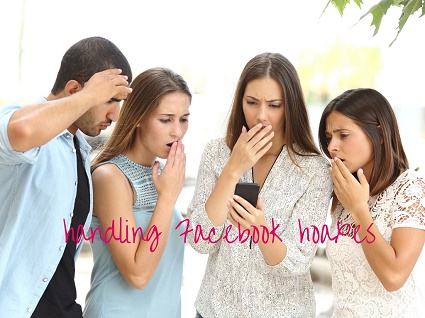Your cart is currently empty!

Facebook Hoaxes
Facebook is great for some of our clients and frustrating for others — it depends on the industry, the offer, and their target audience. People don’t go to Facebook to find practice management software or biotech startups to invest in. If you don’t get the traction you want on Facebook, you might be tempted by this idea: make a post that tells people that they will — unless they share your post — be charged $9.99 a month to use Facebook, starting at the end of the month. Facebook hoaxes spread like wildfire when their perpetrators do this.
We don’t recommend it.
Today, our team members have seen posts that claim they will be charged a monthly service fee unless they share that post with their friends. I haven’t seen it, so I have no screen shot, but it seems pretty straightforward. Facebook will charge you a monthly fee, like your Netflix subscription, the post claims. If you take an action, though, they’ll extend your free services for a while. Like the Nigerian prince email, this scam has been around for a while — since 2009, to be precise.
Facebook said then and still says now that their service will always be free for users. Like Google, Facebook supports its free services with ads. People who buy ads want plenty of eyes and ears paying attention to their ads, so it behooves both Facebook and Google to keep their services free.
That’s not the only Facebook hoax. Previous viral hoaxes have included instructions on how to charge your iPhone in a microwave oven, how to keep the right to photos you post on Facebook (it involved sharing the post), and a claim that the use of Internet Explorer was associated with lower intelligence.
If you use Facebook for your business or nonprofit, how should you deal with Facebook hoaxes?
Don’t spread Facebook hoaxes.
It’s super easy to check rumors like these, so check before you share. Getting caught up in one of these pranks (or money-making scams) makes your organization look foolish, so make sure it’s true before you share it.
In fact, it’s a good practice always to check out any post before sharing. Sometimes you’re dropping in during your coffee break and it seems easy to share something cute as a supportive gesture or just to keep your number of posts where you want them. A new study from Columbia University quantifies a phenomenon that many of us have already noticed: almost 60% of social media post shares are from people who click “share” without reading the post.
Click through and make sure you’re sending people somewhere you are willing to see your company associated with. Make sure the clickbait headline doesn’t lead to disappointment (so often they do). And make sure you’re not spreading a hoax.
If you’re an expert, de-bunk that hoax.
If you’re an oncologist, you should respond to that claim that lemon peels cure cancer — and yes, that really was a popular Facebook hoax. Mythbusting is part of patient education, and it makes sense to help your patients get the truth. Have your blogger write up a post and post a link to it with a clear reference to the relevant hoax that’s going around. That’s a great opportunity to add value for your visitors.
An oncologist doesn’t really need to respond to a claim that Facebook is going to offer silver, gold, and bronze levels of service. But if you see a claim that can get people into trouble — like those instructions to put your phone into your microwave and turn it on — then you don’t have to be a smartphone guru to help your visitors out by letting them know that it’s not a good idea.
by
Tags:

Leave a Reply